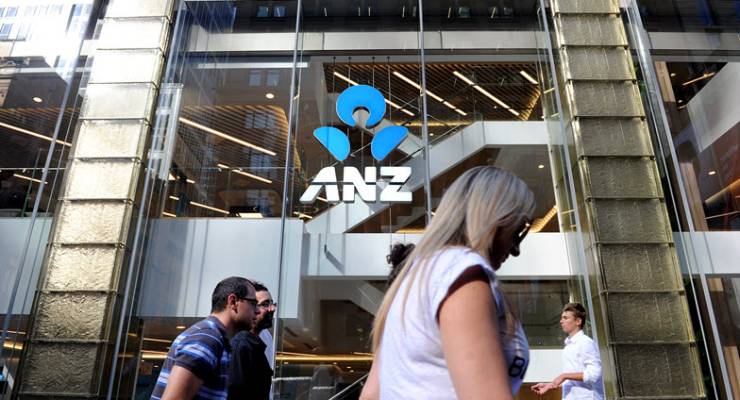
The very male bonhomie of the Australian investment banking class has been shattered by the Australian Competition and Consumer Commission’s (ACCC) criminal cartel charges to be filed against ANZ, Deutsche Bank and Citigroup (as soon as Tuesday).
In fact, it would be fair to say that nothing has driven a wedge through the masters of the Australian financial universe as much as one of the class — JPMorgan, the local arm of the US giant — turning tail and dobbing them in. This development runs all the way to the New York headquarters of Citi and JPMorgan and the US operations of Deutsche (which is the world’s weakest “bulge bracket” bank at the moment).
That move to blow the whistle — potentially more than anything involved in the charges — has shattered the facade of MBA-trained competence that investment bankers like to portray to their clients, the public and the business press.
Reports (not denied) say JPMorgan has acted as a whistleblower and has been granted immunity from prosecution by the ACCC. To gain that immunity, it has to confess any and all wrongdoing (though any significant detail not mentioned and discovered during the case about JPMorgan’s involvement would see the bank lose that immunity).
Of special interest will be the roles of JPMorgan Australia’s CEO Paul Uren, and chair Rob Priestly (who was the CEO up to May 2017 when he stepped down, replacing leading Australian businessman Sir Rod Eddington who is a director of News Corp). Priestly was CEO at the time of the ANZ issue in 2015 and Sir Rod was chair. Uren started at JP Morgan in July 2015 and after the issue was done. But he and Priestly would have been the key decision-makers on whether the bank should ask for immunity from the ACCC.
The ACCC alleges that Citi and ANZ’s (but not JPMorgan?) two lead managers took up to 25.5 million of the 80.8 million shares in the placement that supported the price of ANZ in the market after the issue was completed. This would have had the effect of increasing the bank’s share price for others purchasing the stock and assisted the underwriters to maximise the price of their ANZ stock as they dribbled the shortfall into the market each day. These alleged moves would have also protected those institutional clients who took up the issue from significant loss of value from a falling share price (if the news of the shortfall had become public).
Dumping the stock immediately would have sent the ANZ share price down precipitously because the 25.5 million shares were 31.1% of the issue (or 0.9% of all ANZ shares on issue, but that is a meaningless figure and a red herring from the ANZ).
A lack of disclosure was partly at the heart of another big issue — this time 26 years ago. The last time a major bank share issue fell short was in 1992 when a struggling Westpac (which was on the verge of collapse) was supported by a $1.2 billion capital raising by Credit Suisse, which underwrote the issue and was left with a shortfall of $883 million (in other words ,the shortfall was close to 70%!). That shortfall was how Kerry Packer briefly gained control of just on 10% of the bank’s shares.
Westpac’s issue failed because the prospectus revealed a previously undisclosed tax liability in the bank’s New York office. The size of the shortfall was disclosed to the market, unlike what is alleged to have happened in the ANZ issue.
The key question is: if Credit Suisse disclosed the shortfall at a far more precarious time for its client (and the entire Australian financial system), why couldn’t ANZ, Citi, JPMorgan and Deutsche have followed suit at a time when financial conditions were far more accommodating?








Well, if the CBA fine is anything to go on, even this government should be able to balance the budget with the windfall income they will be receiving.
Government revenue by financial industry malfeasance – love it!
Turnbull has investments in JP Morgan.
According to the Financial Review, transaction fees for .. the NSW power grid were a ‘massive’ $134 million:
‘Banking sources place the fees for their advisers JP Morgan and Royal Bank of Canada at about $20 million. Each. Plus a cut of the debt and equity fees. Sweet Mary! As for the government’s advisers UBS and Deutsche Bank, disclosure on the NSW tender website “estimated” they would each earn $17.5 million for their work …’
Three of these recipients – JP Morgan, [Turnbull investments] Deutsche Bank [Baird, Frydenberg, Whish Wilson all ex Deutsche] and UBS [John Fraser, appointed secretary to the Treasury in January 2015, gave up his posts as chairman of UBS Global Asset Management, UBS Saudi Arabia and UBS Grocon Real Estate] – have been generous donors to the NSW Liberal Party.
An inquiry must determine why so many beneficiaries reaped such huge ‘rewards’ from the public purse.
https://independentaustralia.net/politics/politics-display/corruption-and-incompetence-flourish-under-turnbull,8430
“That shortfall was how Kerry Packer briefly gained control of just on 10% of the bank’s shares.”
The vulture family, good friends of Turnbull.